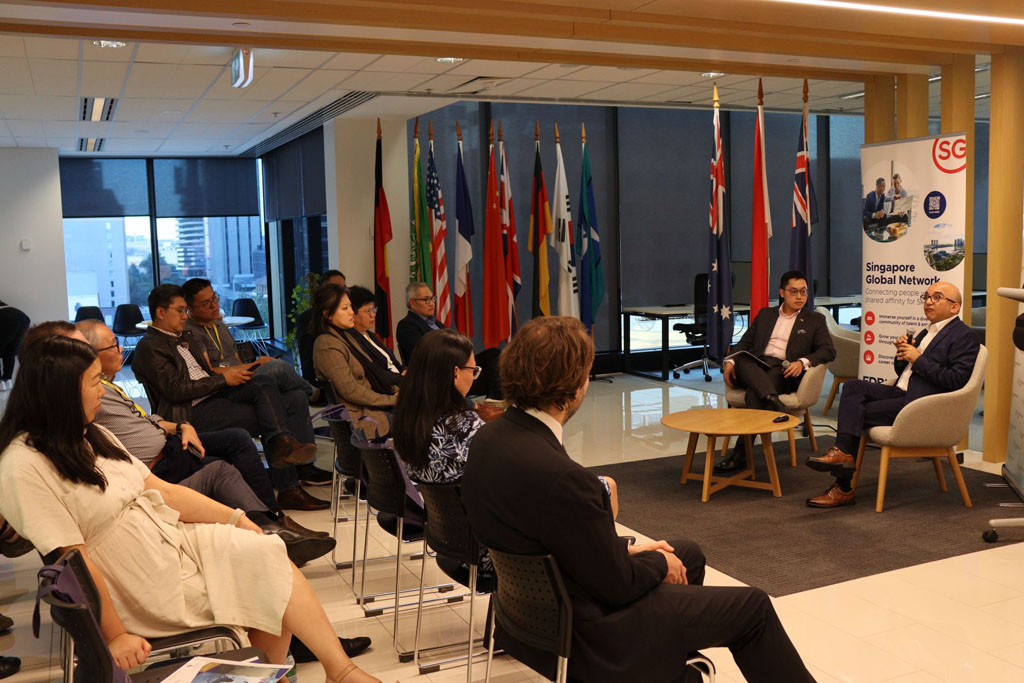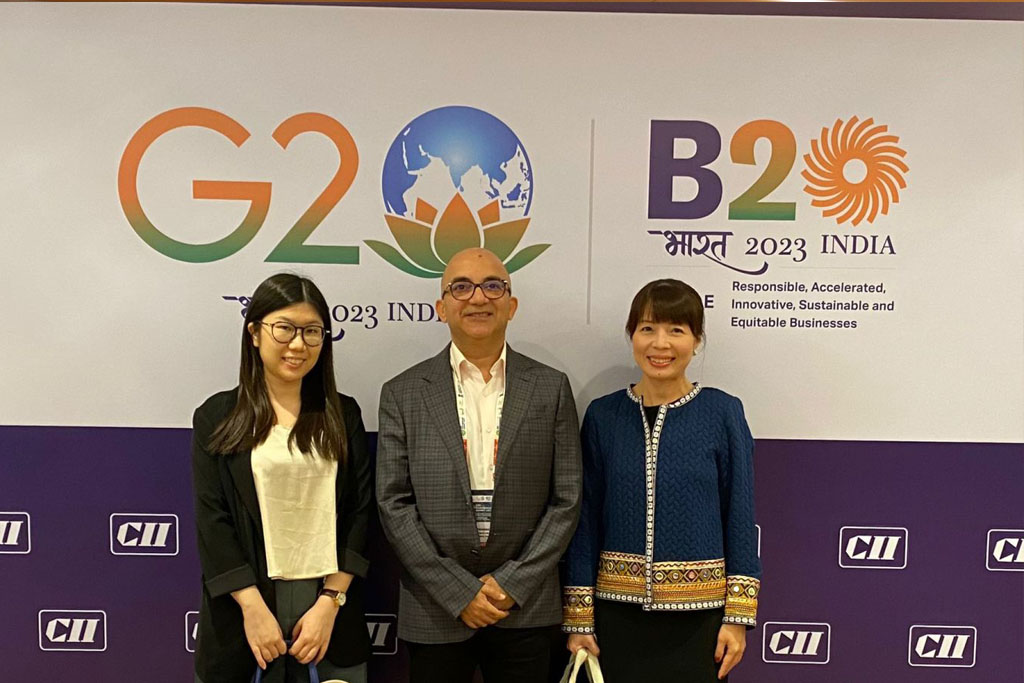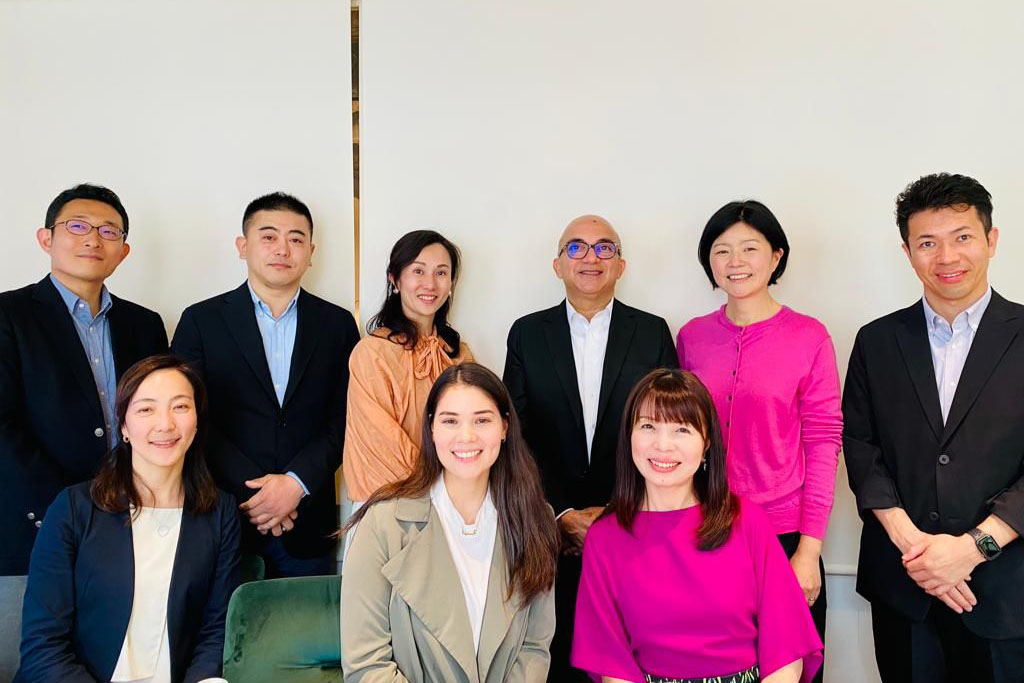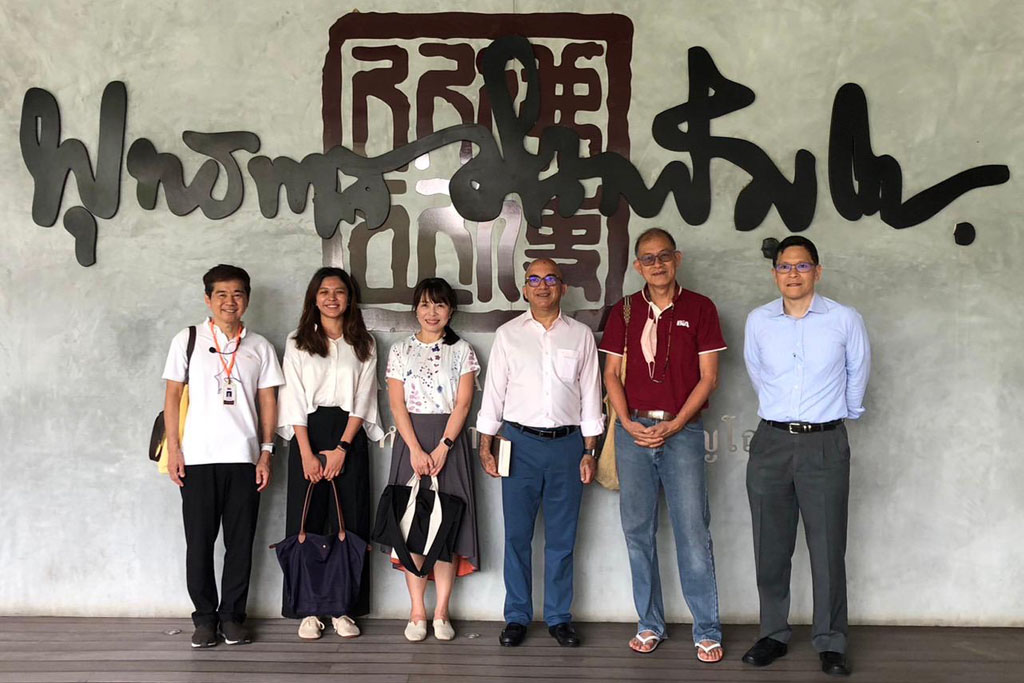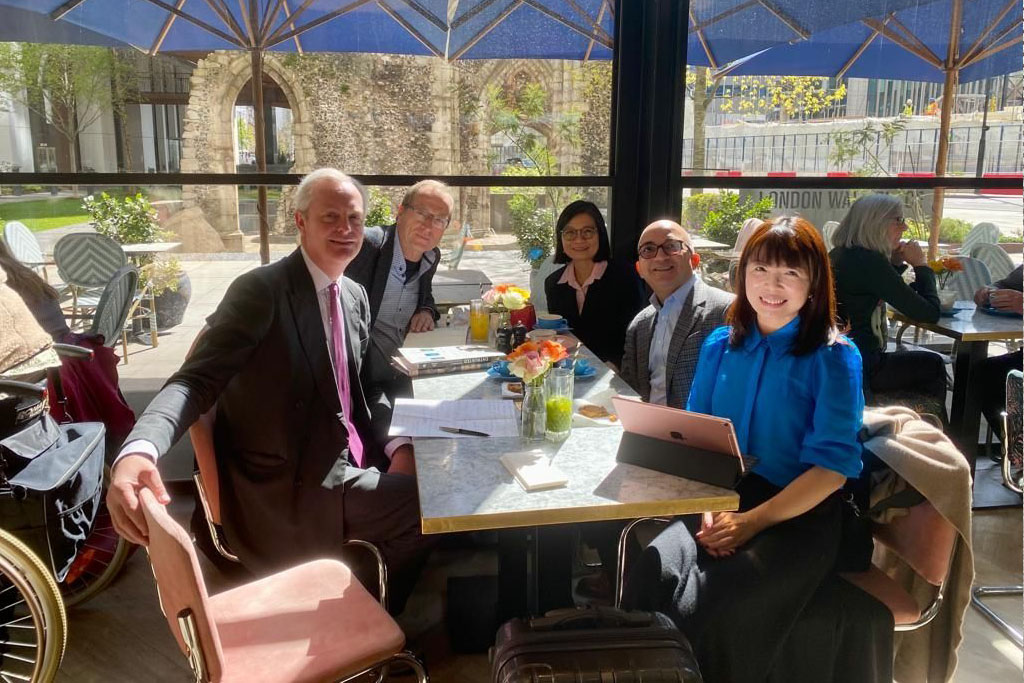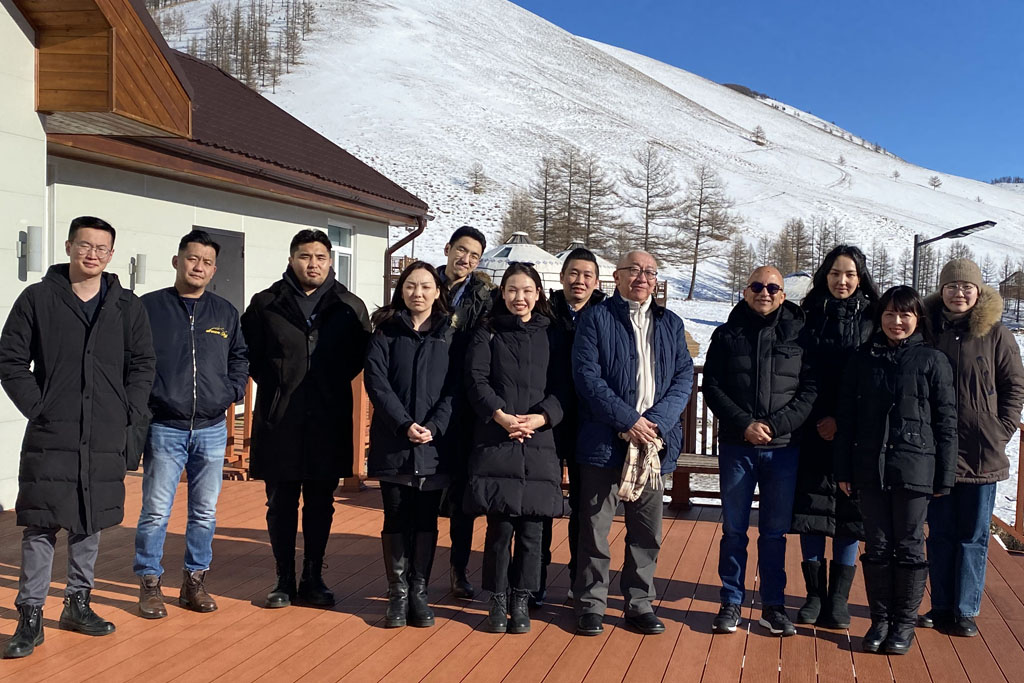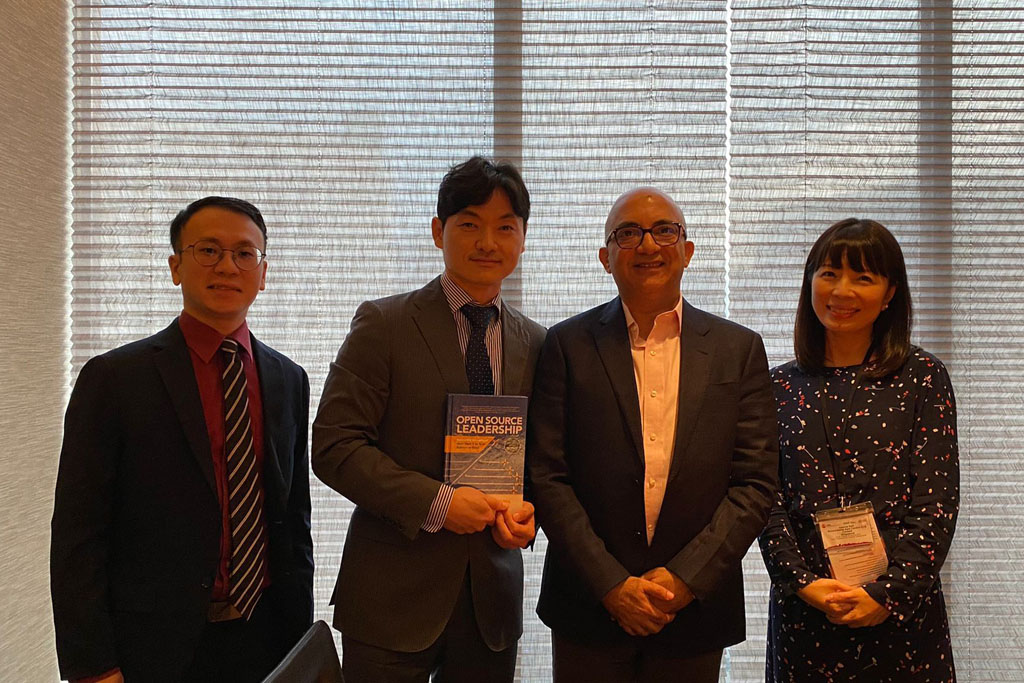The backstory
In 2020, at the height of the pandemic, I joined Stewardship Asia Centre (SAC), a non-profit organization established by Temasek Holdings in Singapore. After a wonderful decade at the Iclif Leadership and Governance Centre in Kuala Lumpur, moving to another country and leaving my treasured colleagues was by no means a decision I made lightly. But SAC’s mission to help business and government leaders, investors, and individuals to do well by doing good, resonated deeply with me. My predecessor Ong Boon Hwee and his colleagues had already laid a strong foundation for stewardship thought and action. It was my pleasure to continue building the house he started.
Steward leadership in action
Throughout my decades-long career working globally, I’ve witnessed two types of business leaders. Those who want to create wealth for the sake of wealth creation, and those who want to do so by doing good. The latter group are steward leaders. They realize that the thirst for more—more profit, more market share, more power—is at the end of the day a meaningless chase. Instead, they are motivated by a larger purpose—to create a collective better future for stakeholders, society, future generations, and the environment.
Since joining SAC, I’ve witnessed countless examples of such leaders committed to positively impacting the environment and society. My favorite example would be the Doi Tung Development Project by the Mae Fah Luang Foundation in Thailand, which my team and I visited in November 2022. Under the care of the Princess Mother and her deputy Khun Chai, the Doi Tung region transformed from a barren, deforested hotbed of crime to a shining example of community sustainability within three decades. Its villagers no longer relied on unlawful pursuits like human and drug trafficking for survival, and now own and operate a profitable coffee and macadamia nuts production and export business, handicrafts, textiles, cafes, and tourism.
The amount of work and sheer determination it took to spur such change were immense, to say the least. The story of Doi Tung’s transformation was at once illuminating and inspiring, and I had to share it with the world. You can read more about how the Princess Mother and Khun Chai revitalized Doi Tung in Chapter 5 of Sustainable Sustainability.
Profit with purpose
Steward leadership isn’t just for the non-profit sector. We see it manifested in for-profit Main Street organizations too. On the first day of his job, Unilever’s former CEO Paul Polman announced that the company would stop providing quarterly earnings guidance to Wall Street because such reporting promotes short-term thinking. Its shares plummeted 8 per cent on the day, and a further 12 per cent over the next few months. Polman was not fazed. To ensure that his vision of creating value for everyone succeeded, Polman replaced or reassigned 75 per cent of the company’s top management to make sure his team was aligned with the new strategy. His key initiative was the ambitious Unilever Sustainable Living Plan (USLP) in 2010 to double its growth, halve its environmental impact, and triple its social impact. Despite the skepticism he faced, Unilever delivered a total shareholder return of 290 per cent over Polman’s tenure.
The Doi Tung Development Project and Unilever under Polman are but two of many embodiments of doing well by doing good that I’ve witnessed over the years, and it is such stories that convince me that it is possible to marry profit and purpose. But how? The journey to create economic value by integrating the needs of stakeholders, society, future generations, and the environment is by no means easy, so how do they do it?
To answer this question, SAC conducted extensive research on organizations that have succeeded in doing well by doing good, and we concluded that they are driven by steward leadership—the genuine desire and persistence to create a collective better future.
Steward leaders, such as the Princess Mother, Khun Chai, and Paul Polman, sincerely want to make a difference in the world, and they pursue a goal much larger than themselves. And such leadership is what we need to drive innovation to solve the existential threats we face today.
Sustainable Sustainablility: A playbook based on years of research
The problems we face seem almost insurmountable, but acting like a steward leader marks a major step towards overcoming these challenges. Sustainable Sustainability is more than just a book; it is a step-by-step playbook for those who want to act but don’t know how.
Backed by extensive research, this playbook is based on the tools and initiatives we’ve created over the past three years, including the Steward Leadership Compass©, a unique values-based framework that codifies why and how the best champions of environmental and social sustainability succeed in marrying profit and purpose. Another tool we created is the Steward Leadership Quotient©, which enables organizations to measure the strength of their steward leadership culture. Next, we developed and launched a whole executive education curriculum for senior business leaders and board directors.
We then created the Steward Leadership 25 (SL25) programme to recognize the 25 best stories of steward leadership in business within the Asia-Pacific region. Our annual Steward Leadership Summit followed.
Finally, to enable the global community in sharing their innovative ideas to save planet Earth and humanity, we built stewardshipcommons.com—a global, crowdsourced content and community hub for all things stewardship, sustainability, responsible investing, and ESG.
Sustainable Sustainability is a culmination of everything the team has built over the past three years on the foundations laid by my predecessors.

If the concepts espoused in Sustainable Sustainability resonate with you, and you’d like to build steward leadership DNA within your organization, Stewardship Asia Centre can help. Get in touch at contact@stewardshipasia.com.sg. We’d be delighted to work with you. There can never be too many people doing good for people and the planet while still thriving commercially.



